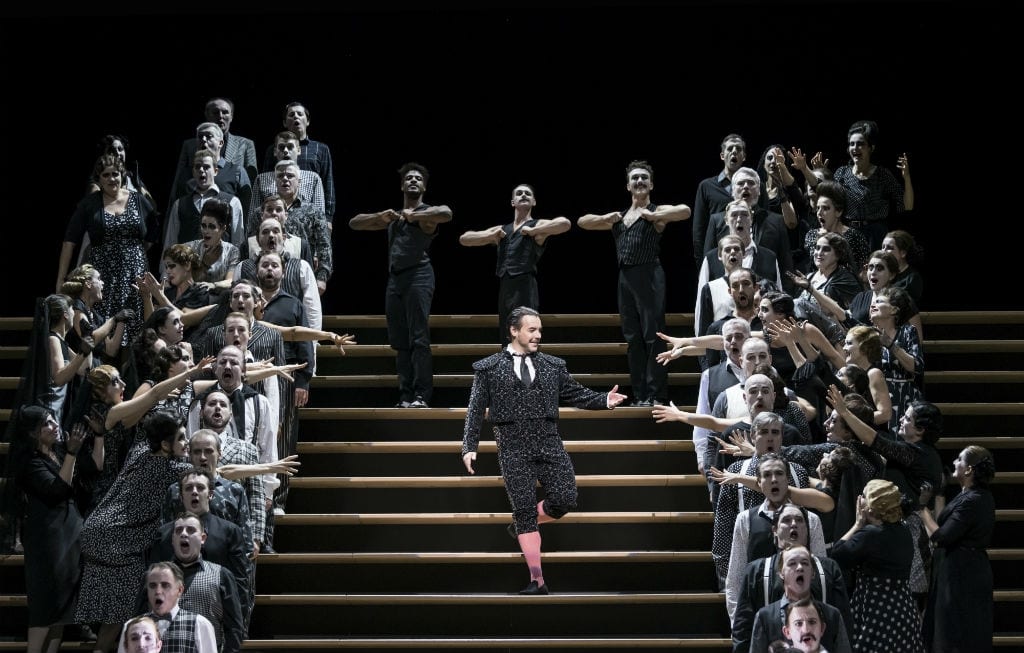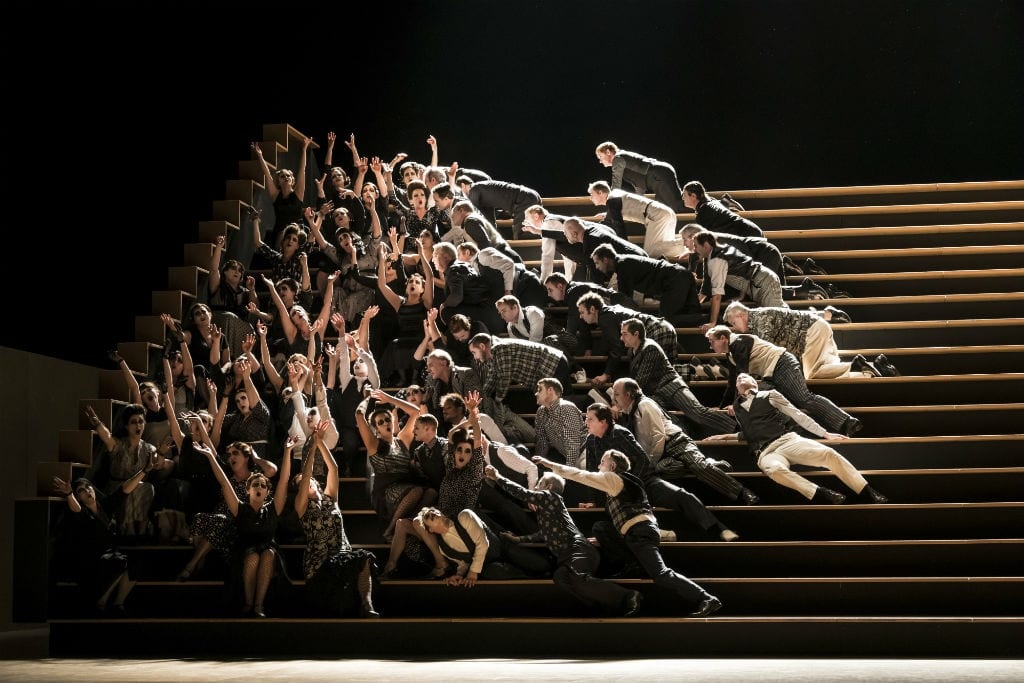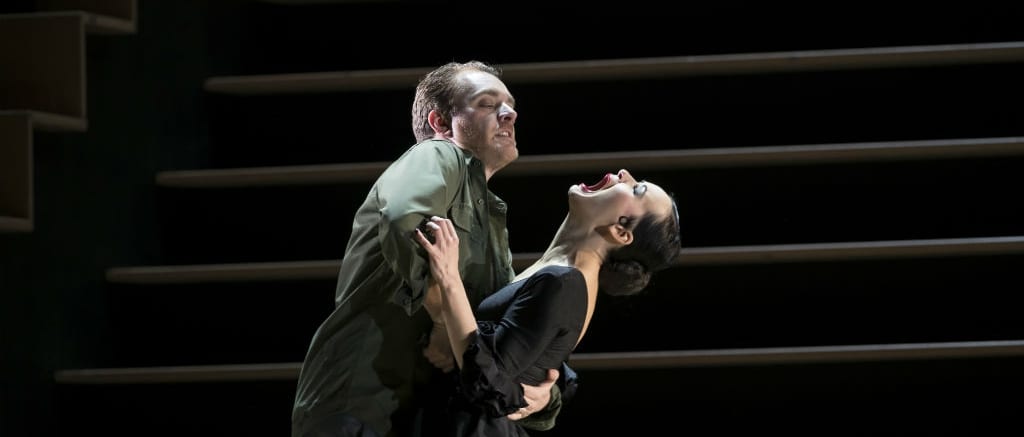If you have any preconceptions of Carmen or, in fact, the entire discipline of opera you shall find them completely misplaced in relation to Kosky’s adaptation. In fact, to put this production solely under the category of opera would be misleading; it’s a fusion of mime, opera and musical theatre that is punctuated with elements of every imaginable dance style. As a first time opera reviewer this production appealed to me through, not only its musical brilliance, but its ability to blow my expectations completely out of the water. This is, unquestionably, a visionary production.
Carmen follows the scandalous life of Carmen the gypsy girl (played by Anna Goryachova) as she searches for love whilst striving to preserve her carefree life. Don José, an officer (played by Francesco Meli), and Escamillo, a famed matador (played by Kostas Smoriginas), vie for her affections amidst a tale of crime, passion and sexuality.

For all traditional opera fans, this production offers enjoyable vocal performances and orchestral accompaniment. The portrayal of Micaëla, a young girl from the home town of Don José (played by Kristina Mkhitaryan), is delightfully true to the original and her numbers are stand-out gorgeous. The elements of this opera, from the staging to the singing and choreography, are all striking yet harmonious. Anna Goryachova and Francesco Meli are convincing within their roles: Goryachova’s sensual mezzo-soprano effortlessly captures the flirtatious Carmen and the emotional intensity of Meli, which at times does compromise his vocal precision, still remains extremely compelling. This is, however, where all the recognisable tradition ends.
This cannot be considered as a principal led production. In fact, I’d go as far to argue that this isn’t a music driven production either; there’s far more emphasis on the staging and the choreography. The set remains constant throughout and presents an optical illusion to the audience that reflects the dominant mime genre. However, it’s the six lead dancers that truly capture the audience and the intended adaptation. The faultless synchronisation of their movement and the incorporation of styles such as ballet, interpretative dance and mime all contribute to their captivating performance. Worth specific mention is how Kosky blends Spanish tradition with modern dance in order to directly use, but adapt, the original material of Carmen.

Where, however, I believe this production falls short is through its desire to be too much. Some elements just don’t fit. Whilst the slapstick adaptation works, the attempt at modernisation, at times, comes across as a slightly cringe worthy attempt to make Carmen relatable to a 21st century audience. For example, the famous aria the ‘Habanera’ is undermined by a statement costume that clumsily detracts from the entire number. In addition, the camp characterisation of Escamillo, who confusingly sports neon pink socks and a diamanté matador costume, comes across as uncomfortable and awkward; he doesn’t convincingly command the stage through either his acting or singing. Despite this, the pre-recorded voiceover of the original dialogue is a highly effective modernism that seamlessly ties the whole production together.
If you are a hardened opera traditionalist this probably is not the production for you but that does not lessen the brilliance of Kosky’s wild interpretation. This show will keep you in constant anticipation as there is absolutely no way to predict what is coming next. I recommend breaking with tradition and giving this a go, if only for the novelty factor of watching trained opera-singers attempting to do the ‘Macarena’ and ‘Gangnam Style’ on stage!

